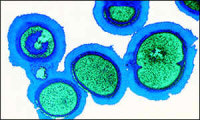



Agricultural Antibiotics may be the Cause of Super-Bugs
US - Have you been to the grocery store recently and chosen that chicken cut that is not treated with antibiotics? Or did you choose one that was treated with antibiotic, thinking all bacteria in it would be dead?
According to recent research, farms may be more effective sources of transmission of antibiotic-resistant bacteria to the community than hospitals. Fresh poultry from animals not treated with antibiotics will probably pose a smaller risk to your health. If you catch any disease from it, antibiotics will really work for you if you need them.
Any bacteria harmful to humans that are left in the antibiotic-treated meat after the antibiotic kills the others will certainly be a significant hazard, if not to you, to the population as a whole. The super-bugs caught from these meats will be hard to kill; for, once they have been exposed to antibiotics, they become resistant to them after some time.
Fighting an infection caused by these bacteria will be much more difficult than fighting bacteria that are not resistant. Like in the recent cases of MRSA, many people either do not get rid of them easily, or continue having the infection for some time in spite of the treatment.
Antibiotics and antibiotic-resistant bacteria are in the air and soil around farms, in surface and ground water, among wild animal populations, as well as on retail meat and poultry. They end up in your kitchen, and contaminate other foods by unsafe handling practices; and if they are able to override the gastric barriers your body has against them, they settle in your gut.
They might live there for a long time without any signs of infection, but ready to be transmitted to other carriers. One or two cases of this kind are enough if the transmission rate is high; that is, if the bacteria are highly contagious. Without appropriate control measures, the harm done by these resistant bacteria starts to spread throughout the community, and affect people that are more susceptible than the carriers.








